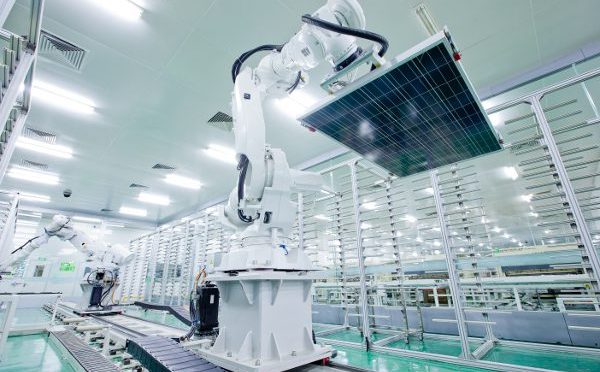Brazil’s new industrial policy, launched this Tuesday (22), with guidelines for the period from 2024 to 2026 and which includes a series of objectives that the country must achieve until 2033, contains in its content some important issues for the manufacturing sector. solar energy.
In an interview with Canal Solar, Adalberto Maluf, secretary of the MMA (Ministry of Environment and Climate Change), highlights the main points that encompass the photovoltaic sector in the new national policy, whose main objective is to resume the role of public power as a tool for the development of the industry.
According to the secretary, the initiative has a strong focus on promoting renewable energies and fostering the bioeconomy. Within this structure, one of the first programs is the creation of a national cyberinfrastructure, financed with resources from the FNDCT (National Fund for Scientific and Technological Development).
In total, more than R$ 335 million will be allocated so that Brazilian companies can expand their technological domain in the renewable energy production chain, with special focus on solar photovoltaic and wind energy.
“We also have some programs within the energy transition mission, the first of which is Energias da Amazônia, which focuses on the decarbonization of isolated systems, in which most of this generation is produced with diesel,” he said. .
“So, decarbonization would come from making isolated solar systems with hybrid systems, especially associated with storage, which is one of the areas that the Government believes has enormous growth potential,” highlighted the secretary.
Another novelty that he highlighted was in relation to PADIS (Program to Support the Technological Development of the Semiconductor Industry). Maluf explains that the program has been expanded to include new semiconductor components and devices.
“This is a long-standing demand from the entire industry to resolve some of the distortions that existed. Those who imported directly had REIDI and did not pay PIS/COFINS, while those who manufactured locally bought some of these inputs with PIS/COFINS (…) Another 2.1 billion are expected for tax exemptions that will be made within the program,” highlighted the secretary. .
The professional also commented during the interview that Brazil also extended the deadline for these incentives until December 2026 and also for other direct and indirect actions to attract investments in chip manufacturing, projects, raw materials and inputs.
“This is one of the areas in which the Government intends to invest and the main objective is to bring the production of (photovoltaic) cells here. So, today several areas of the Government are together trying to make this possible,” he guaranteed.
Another item within the public procurement axis mentioned by Maluf was the Government’s initiative to include photovoltaic solar energy in the Minha Casa Minha Vida works, a measure approved by deputies and senators last year with Law 14,620/23.
“The Government estimates that the country could have at least 2 GW of photovoltaic solar energy in Minha Casa Minha Vida alone. And, for the first time, it requires local content and a margin of preference also in purchases that are located within the PAC (Growth Acceleration Program),” he commented.
Finally, another area that involves the solar energy sector mentioned by the secretary is the development of research and financing, with non-refundable lines. That is, financial resources granted without any requirement for future profitability.
This type of financing is granted to national, public or private, non-profit scientific and technological institutions for the execution of scientific and technological development projects, research infrastructures, as well as human resource training.
The mechanisms and criteria for evaluation, qualification and selection of projects are defined by Finep (Financing of Studies and Projects), according to guidelines and strategic topics defined in the deliberative bodies related to the origin of resources and having plans and policies as parameters. of the federal government.
Projects can only be carried out by institutions, in groups or in cooperation with companies. “We will have non-refundable resources for the development of renewable components and equipment with a focus on solar, wind and hydrogen,” concluded Maluf.
The new industrial policy launched this week specifically targets six areas: agribusiness; bioeconomy; healthcare industrial complex; infrastructure, sanitation, housing and mobility; digital transformation; and defense technology.
The proposal was prepared last semester by the CNDI (National Council for Industrial Development), made up of members from 23 ministries and 50 representatives of productive sectors.
During the presentation of the new plan, it was also reported that R$ 300 billion in financing will be made available until 2026 and that the amount will be administered, above all, by the BNDES (National Bank for Economic and Social Development).



